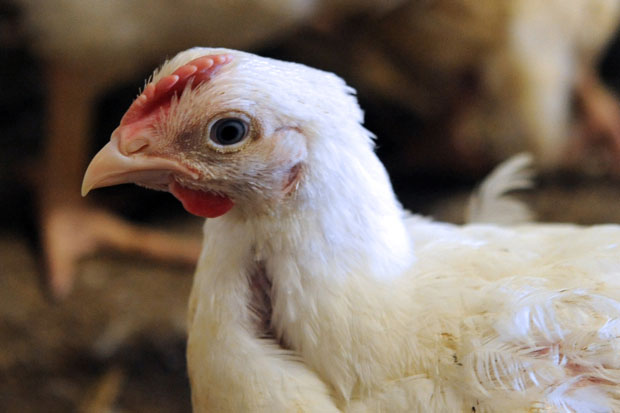Listen
We love animals more than we love people. Of course we do. Following the recent fire at a Manchester dogs’ home, people donated £1 million and blocked the M6 with their cars as they arrived in their multitudes to adopt the displaced animals. It would have been heartwarming, it really would, if we hadn’t also demanded the death of the teenaged boy named on Twitter as the suspect in the arson attack. All over the internet apparently normal people, including ‘friends’ of mine on Facebook, called for a 15-year-old boy to be burned alive.
I feel sick about the dogs too. I’m an animal lover. I adore my dog and my horses possibly more than anything else in the world. I couldn’t bear it if anything happened to them. But perhaps that in itself gives me an insight into why we respond to the death of 50 dogs in a way that precludes all mercy for the screwed-up teenaged arsonist responsible for their demise. Why do we apparently value some animal life (the ‘some’ is crucial) as equal to or even superior to human life?
Here is my thesis, for what it’s worth: having a relationship with an animal is easy compared to having one with a person. To love a dog is a walk in the park. The dog will love you unconditionally and for the most part won’t answer back. Meaningful human relationships are difficult and arguably, in the age of social networking, increasingly elusive. More people opt for a spaniel or a horse over a husband or a wife. No wonder the Pope feels he must warn young people against buying a lapdog instead of knuckling down to marriage and parenthood.
But the fact that we can understand the reason for the Manchester dogs’ home furore does not make it any less scary. When reasonable people demand the death of a teenager in recompense for the death of 50 dogs, something is amiss. And when they compound the confusion by going home that evening to eat a dead animal, society ought to ask itself some awkward questions.
We need to know why it never occurred to the people who blocked the M6 to queue up outside their local abattoir to offer help to all those poor sheep, pigs and cows who are just as sentient and capable of pain and distress as dogs. Why do we care about the mutts of Manchester and not the countless animals that have their throats slashed every year in the halal method? In short, our attitude to animal suffering has become bonkers.
Reluctantly, I’m afraid I must agree with Sir Paul McCartney, who sang a funny little song this week in support of ‘Meat-free Mondays’. If we really wanted to help animals, we would stop buying so many cheap chicken dinners and curry takeouts. We would stop going down the Chinese on Friday night, and spend more money in the supermarket on more ethical produce. But we don’t. We go on buying cheap meat, the biggest sole cause of animal suffering in this world, and we go on demanding an end to animal cruelty.
It wouldn’t be so bad if this attitude were not making inroads into official policy. In the United States this week, it emerged that animal cruelty offences will soon be reported to the FBI following a proposal from the National Sheriffs’ Association and the Animal Welfare Institute. However, this will not apply to anything killed to eat.
In Australia, a shark cull is to be halted after the state’s environmental regulator advised against it. The baited traps were set up along seven beaches after a series of fatal attacks. But critics argued it could damage the marine ecosystem. Never mind the tourist ecosystem. The regulator cited ‘a high degree of scientific uncertainty’ about the impact on the white shark population. Never mind the humans.
It seems that we are not allowed to prefer our own race any more — that’s racism. In a long-running spat I am having with the RSPCA, I find myself debating with the charity’s ruling council member Richard Ryder, who believes that ‘speciesism’ is on a par with racism. Dr Ryder reckons that hurting an animal is as bad as hurting a human, because both feel pain. After gender equality and race equality, equality of the species, apparently, is the next big debate. But if we really think animals are equal to humans, then we need to make some urgent changes. Vegetarianism will have to be compulsory and Buddhism the national religion. No more halal chicken, no more Sunday roasts.
What we have is a glaring double standard: some creatures are so lacking in rights they hardly figure in the debate — cows, sheep, pigs — while others have so many rights they trump the needs of humans — foxes, badgers, bats. Sorry, you animal lovers blocking the M6, but it won’t do. It is no use protesting about 50 dead dogs when you implicitly sanction the slaughter of millions of animals a year so you can gorge on burgers and KFC.
Got something to add? Join the discussion and comment below.
Get 10 issues for just $10
Subscribe to The Spectator Australia today for the next 10 magazine issues, plus full online access, for just $10.
You might disagree with half of it, but you’ll enjoy reading all of it. Try your first month for free, then just $2 a week for the remainder of your first year.















Comments
Don't miss out
Join the conversation with other Spectator Australia readers. Subscribe to leave a comment.
SUBSCRIBEAlready a subscriber? Log in